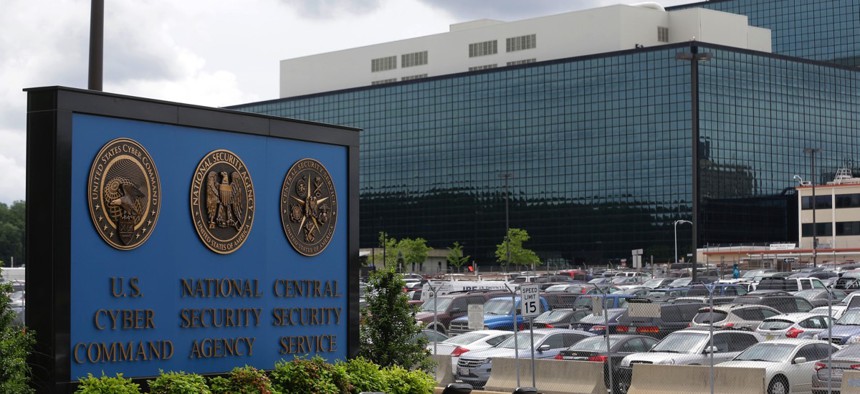Army, Private Sector Demand Behind Georgia Cyber Center’s Growth

U.S. Cyber Command's planned June 2020 move to Fort Gordon, Georgia, has been a boon for the state's new Cyber Center. Patrick Semansky / AP Photo
The state had to expedite phase two of the project.
The $100 million Georgia Cyber Center opened its first facility on July 10, but private sector demand meant the state needed to move faster on phase two of the project, which was originally scheduled for 2020.
A second building, expected to be completed by the end of this year, will ensure the center has about 332,000 square feet available for services like trainings, innovation and cybercrime investigations.
With U.S. Army Cyber Command moving from Washington, D.C., to Fort Gordon, Georgia, in June 2020, potential private sector partners are clamoring for space in the center’s incubator.
“We want to be a good partner for [Fort Gordon], just like we would any other business moving to our state where we do economic development,” Georgia Chief Information Officer Calvin Rhodes told Route Fifty. “This is one area where the governor said we can help you with your skill sets that you’re looking for, with your workforce development needs.”
Training was the focus of the center’s first phase, with classrooms for technical college and university courses, as well as a Cyber Academy for state employees in security positions.
There’s also a research and development component in partnership with the state university system’s Board of Regents.
“As industry brings in an issue to be solved, we find the right university or universities to pair them up with to try and solve those issues,” Rhodes said.
A cybercrime unit with a local government fellowship program will operate out of the center and will have its funding increasing next year for investigations into cases like identity theft.
Watch Route Fifty’s full interview with Rhodes, at the National Association of State CIOs 2018 annual conference in San Diego, below.
Dave Nyczepir is a News Editor at Government Executive’s Route Fifty and is based in Washington, D.C.
NEXT STORY: How North Carolina Kept 911 Up During Hurricane Florence






